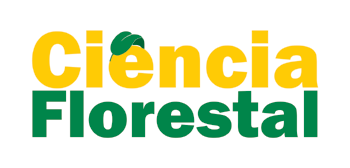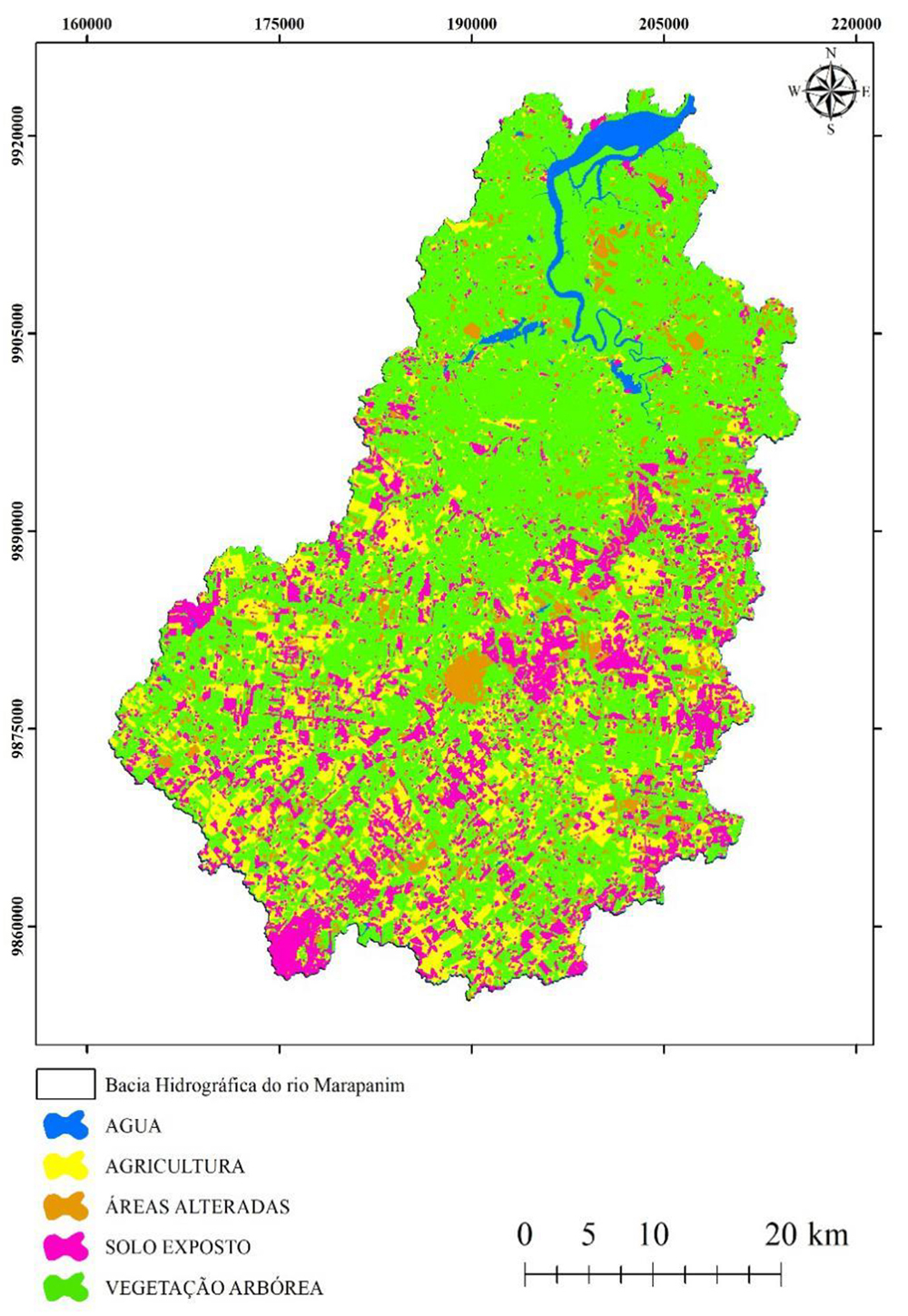Abstract
Forest fragmentation is one of the main consequences of anthropogenic activities in native vegetation areas. When considering the watershed approach, the fragmentation can increase the erosion processes and alter the water regime, notably as a result of deforestation actions. Thus, the present study sought to analyze the landscape structure of Marapanim river watershed, focusing on the fragmentation of tree vegetation. To do so, a Landsat 8, OLI sensor satellite scene acquired in 2017 and classified using the Maximum Likelihood algorithm was used to classify and estimate the different land uses and land cover in 2017 in the basin area. Subsequently, the forest fragments were analyzed using patch level, class and landscape metrics. The results indicate that the landscape of the watershed is mostly composed of tree vegetation (49%) and agricultural areas (29%), responsible for the main changes in the native vegetation cover of the studied basin. The study of the quantification and characterization of the landscape structure showed that the basin landscape is very fragmented, with a total of 16,697 fragments. The average fragment size is 12.79 ha, considered of medium value for biodiversity conservation. The class of tree vegetation is the most fragmented, representing 41.36% of the total fragments of the basin landscape. The shape index of these fragments is 1.56, indicating the predominance of more irregular shapes and therefore more susceptible to edge effects. The results of this study may support the formulation of actions and/or public policies aimed at promoting the recovery and maintenance of tree vegetation fragments of the Marapanim river watershed in the state of Pará.
Keywords:
Forest fragments; Biodiversity; Edge effect

 Thumbnail
Thumbnail
 Thumbnail
Thumbnail
 Thumbnail
Thumbnail
 Fonte: Autores (2019).
Fonte: Autores (2019).
 Fonte: Autores (2019).
Fonte: Autores (2019).
 Fonte: Autores (2019).
Fonte: Autores (2019).